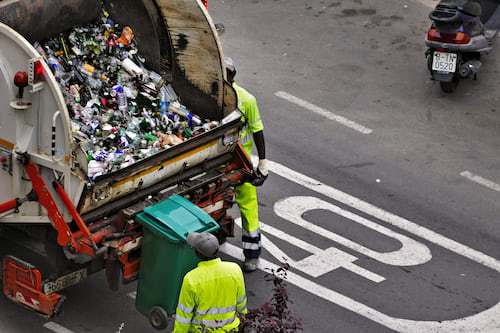Waste Management in Indonesia
When you expand your business in Indonesia, it is very likely that you will produce waste that harm the environment. The Indonesian government formulated a series of laws and regulations regarding waste management in Indonesia. As a business owner, it is important for you to know the in order to comply with the regulations. Here are the waste regulations in Indonesia.
Government Regulation Number 81 of 2012 on Management of Household Waste
This rule stipulates that every Indonesian citizen must reduce, reduce, and recycle their own waste using sustainable materials. Furthermore, this rule also regulates that companies and factories recycle their waste and make sure that all the materials in the production of their goods are from recyclable materials in its entirety.
Regulation of the Minister of Public Works of the Republic of Indonesia Number 3 of 2013 on Implementation of Waste Infrastructure and Facilities
As mentioned in its name, this rule specifically regulates the infrastructures and facilities of waste management in Indonesia, which consists of TPS, TPA, and TPS3R.
Tempat Penampungan Sementara (TPS), which is a temporary facility specifically designed to store waste before they are processed or recycled. TPS must have one important feature, which is a waste processing system that can classify and categorize the waste into at least 5 different types. This will help map out every kind of waste so that the process could be easier later on. Ideally, it would be much better if people already categorized their waste beforehand in order to help the TPS workers work more efficiently.
Tempat Pembuangan Akhir (TPA), which is a final facility to process waste into its final form and return it back to the environment in its new state. The types of waste that could enter this facility include household waste, household-like waste, and residue.
Tempat Pengelolaan Sampah 3R (TPS3R), which is a waste processing facility with the concept of reduce, reuse, and recycle. In this facility, all the waste is collected, organized, reused, and recycled. Furthermore, the waste management processes on this facility include organic waste processing, non-organic waste processing, household and toxic hazardous waste processing, and residue waste processing. All the processed waste will then be transferred to TPA.
Presidential Regulation Number 97 of 2017 concerning National Policy and Strategy for the Management of Household Waste and Household-Like Waste
This regulation focuses on establishing a roadmap to Indonesia’s Waste-Free goal in 2025. The series of plans and programs intended to achieve this is named Jakstranas. It involves reducing a substantial number of household and household-like waste. Furthermore, another key target of Jakstranas is to reduce 30% of waste from its original source and process 70% waste by 2025. Jakstranas is integrated and embedded into every long term development of the country and city governments, acting as a benchmark and point of reference in policymaking.
Government Regulation Number 101 of 2014 concerning Management of Hazardous and Toxic Waste
This rule specifically talks about Bahan Berbahaya dan Beracun (B3) or toxic and hazardous waste. Toxic waste is the type that is potentially harmful or fatal to living organisms who are exposed to them. Meanwhile, hazardous levels are also harmful albeit on a lower level than toxic waste. This rule explains the definition of each type and also emphasizes the fact that everyone who produces toxic and hazardous waste in their business operations has to manage, reduce, store, collect, and bury them. Those whose operations produce toxic and hazardous waste must first obtain an environmental permit.
Law of the Republic of Indonesia Number 8 of 2008 concerning Waste Management
This is one of the earliest iterations of a rule regulating waste management in Indonesia. This rule strongly reaffirms the Indonesian government’s commitment to the 3R policy (reduce, reuse, recycle).
Reduce is the act of decreasing the usage of materials that could potentially end up as a waste. Reuse is the act of continuously using the same objects for a long amount of time in order to stop purchasing new ones and creating waste. Recycle is the act of reprocessing waste and transforming them into something completely new and useful.
The goal of this rule is to improve the general health of Indonesian citizens, increase the quality of the environment, and turn waste into a beneficial resource. This rule also states that waste management is the responsibility of every Indonesian with no exception.
How can Double M help?
Waste Management in Indonesia has a strict regulation. Double M strives to help our clients comply with all the key regulations in Indonesia. Should you have any inquiries, please contact us.
